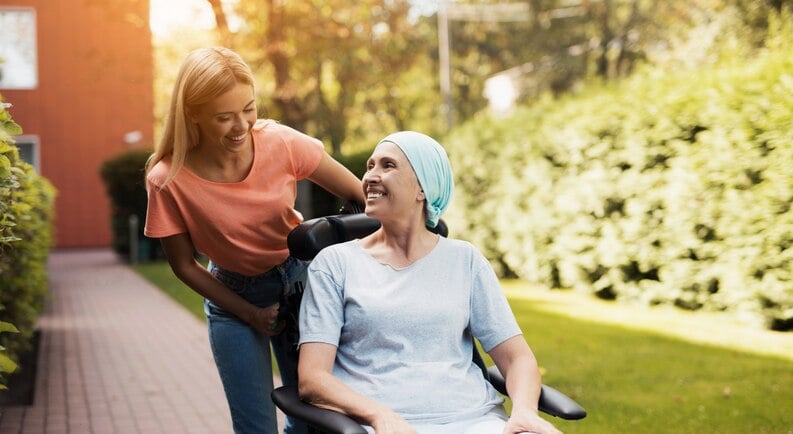Home Healthcare for Cancer Patients: What You Need to Know
Home Healthcare for Cancer Patients


Cancer and its treatment can be physically and emotionally draining for patients. Fortunately, home healthcare offers cancer patients an option to receive skilled medical care in the comfort of their own homes. Here are some important things to know about home healthcare for cancer patients.
Home healthcare can help manage side effects. Many cancer patients benefit from home healthcare services to manage common side effects like fatigue, pain, nausea, appetite changes and more. Skilled nurses can monitor symptoms, administer medications and IV therapies, and make recommendations to improve the patient's comfort and quality of life.
Therapy services can maintain function and mobility. Physical, occupational and speech therapists work with home healthcare agencies to provide individualized therapy plans for cancer patients. They focus on maintaining range of motion, muscle strength, balance and coordination to prevent functional decline during treatment. This can help patients retain as much independence as possible.
Wound care needs are easily managed at home. Patients undergoing cancer surgeries or treatments often require wound care for incisions, ports, or other sites. Home healthcare nurses are skilled in assessing, dressing and irrigating wounds to prevent infection and promote proper healing. They can also teach family caregivers how to provide ongoing wound care.
Palliative and hospice care are options. For patients with advanced cancer, home healthcare can provide palliative care to relieve symptoms and stress. When a cure is no longer possible, hospice care focuses on comfort and quality of life. Both are Medicare-covered services that allow patients to spend their final days at home.
In-home support eases the burden on caregivers. Home healthcare professionals can provide respite and assistance to overwhelmed family caregivers. From medication management to bathing and feeding, the right home healthcare team can take some of the pressure off caregivers so they have the energy to focus on emotional support.
Talk to your oncologist about a home healthcare referral. They can connect you with reputable agencies and providers experienced in cancer care. Interview potential agencies to find the best fit for your needs. Ask about the agency's experience with cancer patients, services offered, insurance accepted, and availability.
Prepare your home beforehand. Before home healthcare begins, make any necessary modifications to ensure safety and accessibility. Stock up on supplies, set up spaces for medical equipment, and plan for meals and medications. A prepared home will help your care run smoothly.
Communicate openly with your care team. Be honest about your needs and concerns with both home healthcare staff and family caregivers. Ask questions and clarify instructions to avoid confusion. As your condition changes, speak up so your care plan can be adjusted to meet your current needs.
Take advantage of technology to stay connected. If you're feeling isolated, tools like video chat, email and text messaging can help you stay in touch with loved ones. Some home healthcare agencies also offer telehealth services to remotely monitor patients.
Home healthcare for cancer patients aims to improve quality of life during treatment or at end of life. By working closely with your care team and caregivers, and preparing your home beforehand, you can make the most of home healthcare services. Don't hesitate to advocate for yourself and communicate your needs - your comfort and wellbeing are the top priorities. With the right support at home, you can focus your energy on healing and staying connected with loved ones during this challenging time.
Remember that every patient's experience is unique, so be open and honest about what's working and what isn't. Home healthcare for cancer patients, when utilized effectively, can help you maintain as much independence, dignity and control as possible during treatment. With the right home healthcare plan in place, tailored to your specific needs and goals as a cancer patient, you can continue treatment with as little disruption to your daily life as possible. Home is where you should feel most comfortable, and home healthcare can help make that a reality.
